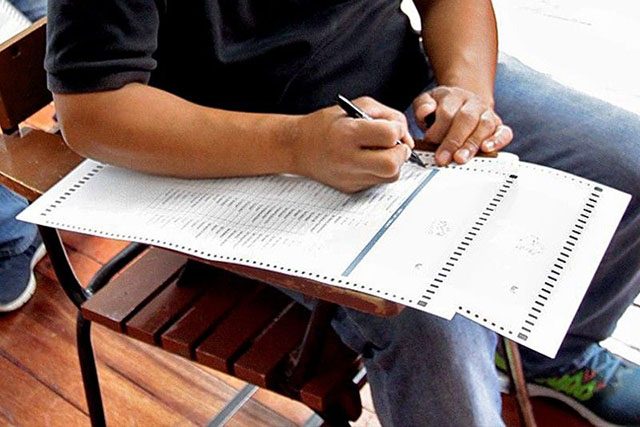
Concerned social media users tagged the Comelec after a particular voter unlawfully shared pictures of her accomplished ballot with the names of her preferred senatorial bets.
Twitter user @EmeraldJackie previously uploaded two pictures that showed her voting receipt and accomplished ballot as she proudly declared that she has finished voting.

The particular user later deleted the pictures but there others who took a screenshot of the compromising post and reported it to the Comelec by tagging its Twitter account.
hola @COMELEC hola @EmeraldJackie
see u in jail HAHAHAHAHAHAHA pic.twitter.com/Gs44U4OpkT
— angela (@angelamaaae) May 13, 2019
Radyo Comelec, the voter’s assistance account created by the polling body, replied that they have taken a screenshot of the particular post and has already forwarded it to the authorities concerned.
We had this post screened shot po. Forwarded to authorities
— Radyo Comelec (@radyocomelec) May 13, 2019
The particular user in a different tweet claimed that poll watchers assigned in her precinct saw that she was able to take pictures. However, she was not sanctioned.
“They saw me taking pictures, sabi ko para may (resibo) ako. Ok lang naman. So ‘yung mga watchers hindi din nila alam na bawal,” she replied to a Twitter user who noticed that she was able to take pictures.
They saw me taking pictures sabi ko para may receivo ako. Ok lang naman. So yung mga watchers hindi din nila alam na bawal🤗😊
— Emerald French (@EmeraldJackie) May 13, 2019
For the ballot’s sanctity
Voters are allowed to bring their cellphones in polling places but they are prohibited from using them.
Poll watchers are similarly allowed to bring their respective gadgets but they cannot use them to take pictures or videos of an accomplished ballot.
The same thing goes for media personnel.
Voting receipts are not allowed to be brought out of the polling place as well.
Under Comelec’s Resolution No. 10088 that was promulgated in April 2016, it is prohibited to use “capturing devices, including, but not limited to, digital cameras or cellular phones for whatever purpose while inside the polling place.”
Section 195 of the Omnibus Election Code also prohibits voters from exhibiting its contents to any person.
Those who will be found violating the provision will have to be imprisoned for one to six years. He will also be disqualified from holding public office and be deprived of his right to suffrage.
Provincial election officer Ferdinand Gujilde explained that such measures are done to protect the sanctity and security of the ballots for a fair electoral process.
“We have to protect the sanctity and secrecy of the ballots. The sanctity and the secrecy of the ballots mean that nobody can force a voter to divulge the names of candidates he or she voted for, not even the court, not even the Supreme Court,” he said.
Guijilde added that voters can actually divulge their preferred candidates “but outside the polling place.”









